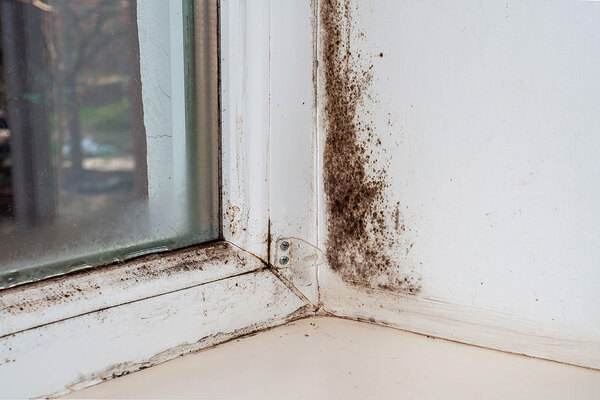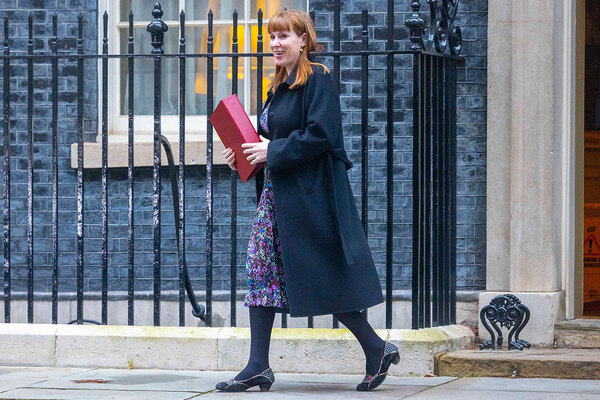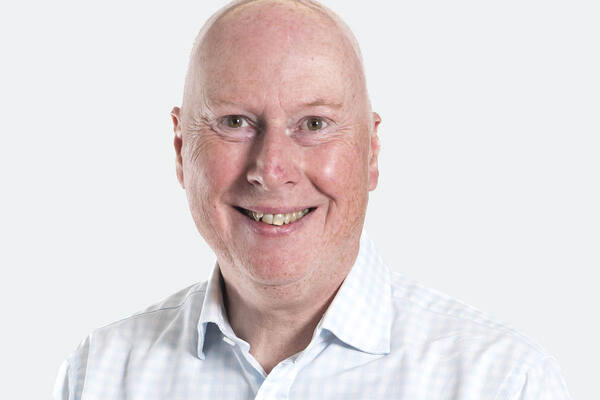RSH downgrades three HAs and upgrades another
The English regulator has downgraded the governance grading of one social landlord and the viability grades of two others, while upgrading another for governance.
The Regulator of Social Housing (RSH) downgraded Hexagon Housing Association from G1 to G2, and downgraded both Black Country Housing Group (BCHG) and 1,800-home Eden Housing Association (EHA) from V1 to V2. Meanwhile, it upgraded Cheshire Peaks & Plains Housing Trust from G2 to G1.
Hexagon Housing Association
The RSH downgraded Hexagon to G2 and said that the housing association, which manages almost 4,500 homes across South East London, needs to strengthen the accuracy of its data.
This is to ensure that it is “adequate to support the oversight and management of risks” to key areas of service delivery, assurance of compliance and to support its decision-making, the regulator added.
The RSH said that after Hexagon hired a new chief executive, Sheron Carter, in the summer, it self-referred data quality issues to the regulator on landlord health and safety, rents and repairs. There have also been data inaccuracies in regulatory returns, the regulator added.
The regulator also said that weaknesses in complaint-handling have been highlighted by the Housing Ombudsman. A report by the ombudsman earlier in March showed that Hexagon did not comply with two complaint-handling failure orders in the three months from October to December.
The RSH said in its regulatory judgement: “Hexagon needs to strengthen its data systems to ensure that board decision-making and control is underpinned by accurate, timely and relevant data.”
Hexagon maintained its V2 rating, with the regulator saying that it has an adequately funded business plan, sufficient security in place, and forecasts to continue meeting its financial covenants.
The RSH said that the provider continues to face risks that it needs to manage to ensure ongoing compliance, including exposure to the housing market through sales and delivery of its committed development programme.
The RSH said: “Additional asset management costs relating to fire safety and energy efficiency works, together with higher inflation and interest rate pressures in the current economic environment, impact on its capacity to manage adverse events.”
Ms Carter said that the housing association has undertaken a data quality review, and is currently automating key processes.
She said that the social landlord has made considerable progress in reducing a backlog of fire risk assessment safety works and electrical installation inspections, with the remaining fire risk assessment works largely falling into the low-medium risk category.
Ms Carter said that a new complaints investigation team has been appointed and trained to provide robust independent assessment of all complaints and respond within published timeframes. She said Hexagon anticipates that residents will see an improvement in complaint-handling and first-time resolution in 2023.
Ms Carter said: “Hexagon accepts the G2 compliant regrade, as we acknowledge the need for improvement and are already making vital changes.”
Simon Fanshawe, chair of Hexagon, said: “The board has approved a new corporate strategy centred on core services to customers.
“Within the first two years of this plan, the priority will be to turn around under-performing services, update our systems, improve the scope and quality of our data, make better use of our assets, complete our committed development programme, and improve our overall financial health in the face of the serious challenges the whole sector is facing.
“We will work closely with the regulator to keep our progress under review as we work towards a return to G1.”
Black Country Housing Group and Eden Housing Association
The RSH downgraded the viability of both 2,200-home Black Country Housing Group (BCHG) and 1,800-home Eden Housing Association (EHA) to V2.
The regulator said that BCHG is increasing investment in its existing homes and developing new homes, and EHA is increasing its investment in existing stock, including higher expenditure on stock sustainability and energy efficiency.
The RSH said in each regulatory judgement that as a result of the increasing investment, the provider is forecasting reduced headroom against lender covenant requirements. The regulator said that delivering the investment, coupled with the current economic uncertainty in relation to inflation and interest rates, reduces the organisation’s capacity to respond to adverse events.
This follows a move by the RSH to downgrade the viability rating of around 50 housing associations, from V1 to V2, over the past few months, and a warning from the regulator in its quarterly survey.
In the survey it said it was “evident that levels of interest cover have deteriorated and are set to reduce again over the next 12 months”, as interest rates continue to rise, and providers continue to invest in their stock.
Chris Fawcett, chief executive of EHA, said: “We’re delighted to retain our G1 rating, and we expected, along with many other housing associations in the current economic climate, a regrade to V2.”
Amanda Tomlinson, chief executive of BCHG, said: “Our G1 rating recognises the strong governance in place at BCHG. The regrade to V2 was unsurprising, however our board has made strategic choices to invest in quality homes, new housing and our customer offer.”
The RSH said both BCHG and EHA have adequately funded business plans, sufficient security in place and are forecast to continue to meet their financial covenants under a reasonable range of scenarios.
Both also maintained their G1 ratings.
Peaks & Plains Housing Trust
The RSH’s previous assessment, published in September 2021, upgraded Peaks & Plains’ governance grade from G3 to G2, recognising that the provider had strengthened its governance arrangements but that some aspects still required improvement to support continued compliance.
Now, the RSH said it has assurance that the 5,200-home social landlord has further strengthened its governance arrangements.
The RSH said in its judgement: “The board has refreshed its membership and now has a more strategic focus including enhanced oversight of the delivery of the organisation’s strategic plans and priorities. It has improved the management of risks, including those relating to compliance with loan covenants.
“Peaks & Plains has also implemented a series of improvements to the quality of its data and has strengthened its reporting and oversight of compliance with its health and safety responsibilities.”
The group also maintained its V1 rating.
Mark Howden, chief executive of Peaks & Plains, said: “Retaining our V1 status for financial viability and regaining the highest rating for our governance is a huge achievement for the team.
“This is the culmination of a massive effort by the whole team at Peaks & Plains to get us back to a G1. It’s a reflection of the hard work that everyone at the trust has played a part in. Importantly, the regulator also interviewed customers and observed our involved tenant group.
“Our assessment from the regulator formed part of their pilot inspection programme. This was a great opportunity for us to get a good understanding of how we will be judged against the new consumer standards in the future.”
Jane McCall, chair of Peaks & Plains, added: “It is good to see that the significant improvements we have seen as a board have been recognised by the regulator. This judgement is a real credit to the hard work of the whole organisation including our involved residents.”
Changed basis for viability grades
Elsewhere, the RSH maintained the G1/V2 rating while changing the basis for the viability grades of Hyde Housing Association, Greatwell Homes, Prima Housing Group, Selwood Housing Society and Brunelcare.
The RSH said that its previous judgement for Hyde concluded that the 48,000-home group had reduced financial capacity to respond to adverse events as a result of material financial exposures from its sales and development programme. At the time it said that Hyde was exposed to material, short-term financial risks from a large treasury restructuring programme.
The regulator said that these treasury risks have now been mitigated.
The RSH said: “Delivering the treasury strategy has increased Hyde’s financial capacity in respect of interest costs and interest cover. However, while Hyde is managing the risks in its sales and development programme, it remains exposed to the housing market.
“Hyde has also increased investment in its homes and expects to make further investment over the next few years alongside its development plans. In combination this reduces Hyde’s capacity to respond to adverse events.”
Rod Holdsworth, chief financial and resources officer at Hyde, said: “We’re delighted to have our governance and viability ratings reconfirmed as G1 and V2, as part of our routine in-depth assessment by the Regulator of Social Housing.
“The regulator recognises our strong financial position and resilient long-term plans, and also found we had successfully increased our financial capacity through an effective treasury strategy, implemented since the last review.
“The basis for our V2 grading has changed because our development programme exposes us to housing market risks. However, the regulator recognises these risks are well-managed through our partnerships with Homes England and with our investors AXA IM-Alts and M&G; that’s why we have retained our V2 rating.”
Referring to Greatwell Homes, the regulator said that the provider needs to implement mitigations to sustain headroom against funder covenants, as it increases investment in existing homes within the current uncertain economic environment.
Jo Savage, chief executive at Greatwell Homes, said that maintaining a G1 rating shows that the organisation is meeting its corporate objectives and demonstrated that the organisation is well run.
She said: “As part of our Live Greatwell corporate plan, we are committed to investing in our existing homes to make them safe places to live and shape areas people are proud of. In the current economic climate, this of course comes with its challenges. However, the regulator sees our ability to manage our material risks and that our financial plans are consistent with our financial strategy, and this is thanks to the strong governance structure here at Greatwell Homes.”
Referring to Selwood Housing, the RSH said Selwood is increasing planned investment in its existing homes, including fire safety and energy efficiency work, and is undertaking a business transformation programme, which is intended to achieve future operational and financial efficiencies.
These additional costs, together with higher inflation and interest rate pressures, mean that Selwood’s underlying interest cover position has weakened and this impacts on its capacity to manage adverse events, the regulator added.
Barry Hughes, chief executive at Selwood, said: “The V2 grading reflects the exceptionally challenging economic circumstances facing housing associations and our customers.
“Despite this, we remain committed to investing in our existing homes, as well as in our transformation programme which will bring substantial future benefits for our customers.”
The RSH said that Prima Housing has less headroom against funder covenants and reduced capacity to respond to adverse events as a result of increasing investment in new and existing homes.
A spokesperson from Prima said: “Prima was pleased to retain its G1/V2 ratings from the Regulator of Social Housing, following our recent in-depth assessment, meaning we are compliant in both governance and viability.
“Our tenants tell us that their priorities are for us to continue to invest in our existing homes, upgrade homes so they are more energy-efficient, warm and more affordable to heat, and that we build much-needed new homes.
“With this in mind, and despite the more challenging economic times for the sector, we have carefully set out our business objectives and managed our investment plans, so we can continue to deliver on these key tenant priorities. The G1/V2 judgement demonstrates that we are investing where it matters most.”
Brunelcare has been contacted for comment.
Elsewhere, Bernicia Group, North Star Housing Group, RHP and Soha Housing all maintained their existing grades of G1/V1.
Update: at 11.58pm, 31.03.2023
This article was updated to include comments from BCHG and Prima Housing.
Sign up for Social Housing’s weekly news bulletin
Social Housing’s weekly news bulletin delivers the latest news and insight across finance and funding, regulation and governance, policy and strategy, straight to your inbox. Meanwhile, news alerts bring you the biggest stories as they land.
Already have an account? Click here to manage your newsletters.
RELATED









